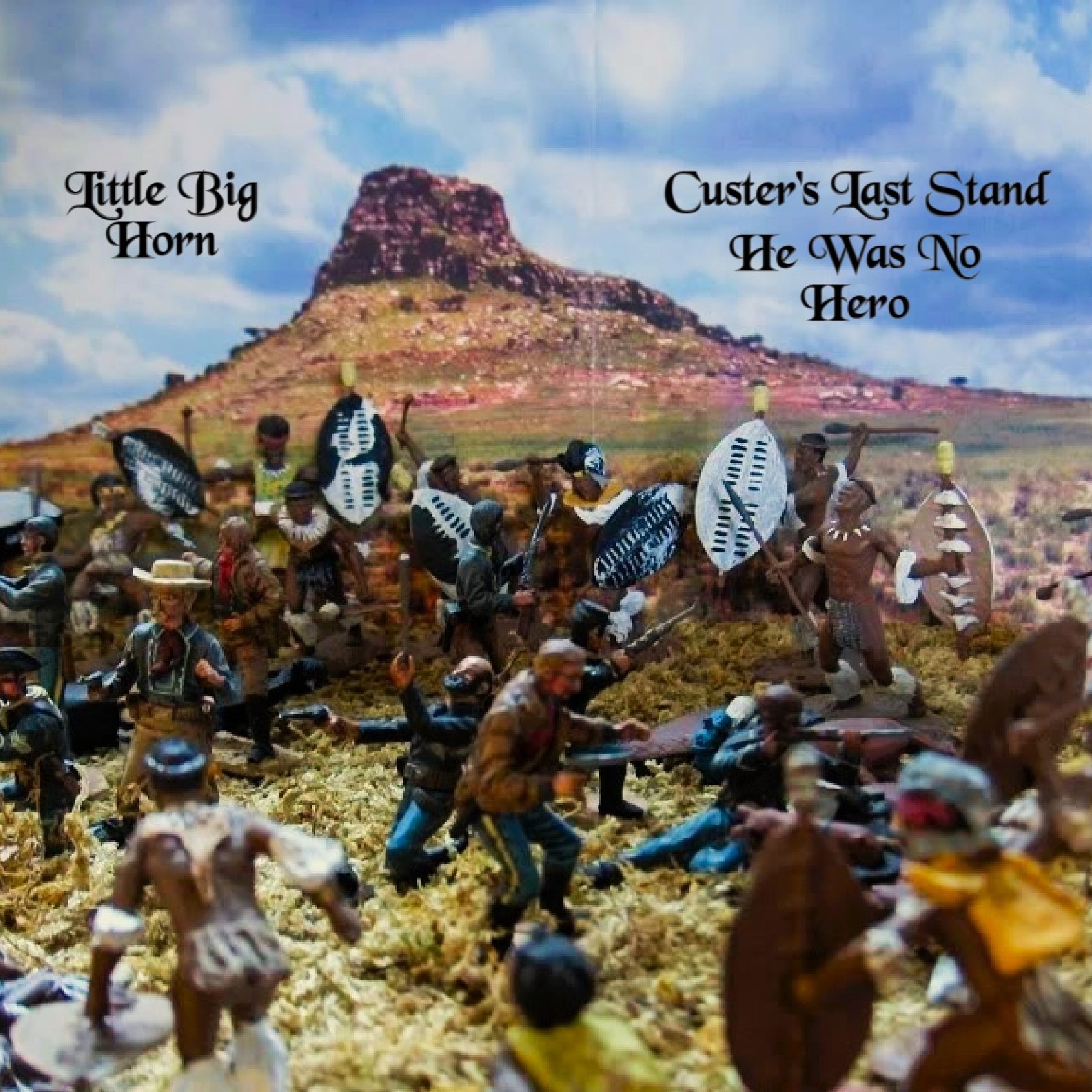The following is my own perception of George Armstrong Custer. I am not asking you to share the way I feel, your thoughts about the man are your own.
George Armstrong Custer was in no way a hero. The man was a coward. In July 1861 quickly earned recognition for himself with his brilliant direction of his actions at the First Battle of Bull Run. He also seemed to possess a gift for avoiding injury, which he came to call "Custer's luck." (Unfortunately, the men under his command weren't always so lucky, suffering disproportionately high casualties during the war.)
George Custer would wait until the braves were away from camp to attack killer women, children, and the elderly. General Custer had most of the qualities which made him a first-class asshole.
Sitting Bull, the revered Lakota chief who had originally wanted peace at Little Bighorn. Custer, however, was determined to fight. Custer wasn't but 18 when he went to the U.S. Military Academy at West Point. He arrived in 1857. While intelligent and talented, he dismissed the Academy’s disciplinary system and was a lazy student. He was nearly expelled several times. (in short - a troublemaker). He racked up 726 demerits in just four years – one of the highest amounts in West Point history – and graduated last in his class, a position commonly known as the “goat.”
Despite his unimpressive record, the U.S. Army desperately needed officers to serve in the newly-begun Civil War. He was commissioned a second lieutenant and based in Washington, D.C. (Washington, D.C. - that alone should tell you something). He took every opportunity to get himself in front of the cameras and newspapermen documenting the war. He loved the public spotlight. He would wear unusual and flamboyant uniforms, which brought him even more attention.
Ulysses S. Grant removed Custer from command and briefly had him arrested when he tried to return to his troops. after his testimony at a Congressional hearing in Washington, D.C., implicated several members of the administration, including Grant’s brother. Only after several high-ranking generals intervened was Custer allowed to return to his post. Major Marcus Reno and Captain Frederick Benteen were later believed to have played a role in Custer's death by not rushing to his aid at the Little Bighorn. As popular opinion about America’s mistreatment of Native Americans shifted, so to did attitudes about Custer, who remains a highly controversial figure.
https://www.history.com/topics/early-us/george-armstrong-custer
https://www.history.com/news/10-things-you-may-not-know-about-george-armstrong-custer
George Armstrong Custer was in no way a hero. The man was a coward. In July 1861 quickly earned recognition for himself with his brilliant direction of his actions at the First Battle of Bull Run. He also seemed to possess a gift for avoiding injury, which he came to call "Custer's luck." (Unfortunately, the men under his command weren't always so lucky, suffering disproportionately high casualties during the war.)
George Custer would wait until the braves were away from camp to attack killer women, children, and the elderly. General Custer had most of the qualities which made him a first-class asshole.
Sitting Bull, the revered Lakota chief who had originally wanted peace at Little Bighorn. Custer, however, was determined to fight. Custer wasn't but 18 when he went to the U.S. Military Academy at West Point. He arrived in 1857. While intelligent and talented, he dismissed the Academy’s disciplinary system and was a lazy student. He was nearly expelled several times. (in short - a troublemaker). He racked up 726 demerits in just four years – one of the highest amounts in West Point history – and graduated last in his class, a position commonly known as the “goat.”
Despite his unimpressive record, the U.S. Army desperately needed officers to serve in the newly-begun Civil War. He was commissioned a second lieutenant and based in Washington, D.C. (Washington, D.C. - that alone should tell you something). He took every opportunity to get himself in front of the cameras and newspapermen documenting the war. He loved the public spotlight. He would wear unusual and flamboyant uniforms, which brought him even more attention.
Ulysses S. Grant removed Custer from command and briefly had him arrested when he tried to return to his troops. after his testimony at a Congressional hearing in Washington, D.C., implicated several members of the administration, including Grant’s brother. Only after several high-ranking generals intervened was Custer allowed to return to his post. Major Marcus Reno and Captain Frederick Benteen were later believed to have played a role in Custer's death by not rushing to his aid at the Little Bighorn. As popular opinion about America’s mistreatment of Native Americans shifted, so to did attitudes about Custer, who remains a highly controversial figure.
https://www.history.com/topics/early-us/george-armstrong-custer
https://www.history.com/news/10-things-you-may-not-know-about-george-armstrong-custer
The following is my own perception of George Armstrong Custer. I am not asking you to share the way I feel, your thoughts about the man are your own.
George Armstrong Custer was in no way a hero. The man was a coward. In July 1861 quickly earned recognition for himself with his brilliant direction of his actions at the First Battle of Bull Run. He also seemed to possess a gift for avoiding injury, which he came to call "Custer's luck." (Unfortunately, the men under his command weren't always so lucky, suffering disproportionately high casualties during the war.)
George Custer would wait until the braves were away from camp to attack killer women, children, and the elderly. General Custer had most of the qualities which made him a first-class asshole.
Sitting Bull, the revered Lakota chief who had originally wanted peace at Little Bighorn. Custer, however, was determined to fight. Custer wasn't but 18 when he went to the U.S. Military Academy at West Point. He arrived in 1857. While intelligent and talented, he dismissed the Academy’s disciplinary system and was a lazy student. He was nearly expelled several times. (in short - a troublemaker). He racked up 726 demerits in just four years – one of the highest amounts in West Point history – and graduated last in his class, a position commonly known as the “goat.”
Despite his unimpressive record, the U.S. Army desperately needed officers to serve in the newly-begun Civil War. He was commissioned a second lieutenant and based in Washington, D.C. (Washington, D.C. - that alone should tell you something). He took every opportunity to get himself in front of the cameras and newspapermen documenting the war. He loved the public spotlight. He would wear unusual and flamboyant uniforms, which brought him even more attention.
Ulysses S. Grant removed Custer from command and briefly had him arrested when he tried to return to his troops. after his testimony at a Congressional hearing in Washington, D.C., implicated several members of the administration, including Grant’s brother. Only after several high-ranking generals intervened was Custer allowed to return to his post. Major Marcus Reno and Captain Frederick Benteen were later believed to have played a role in Custer's death by not rushing to his aid at the Little Bighorn. As popular opinion about America’s mistreatment of Native Americans shifted, so to did attitudes about Custer, who remains a highly controversial figure.
https://www.history.com/topics/early-us/george-armstrong-custer
https://www.history.com/news/10-things-you-may-not-know-about-george-armstrong-custer
0 Comments
0 Shares
1728 Views





